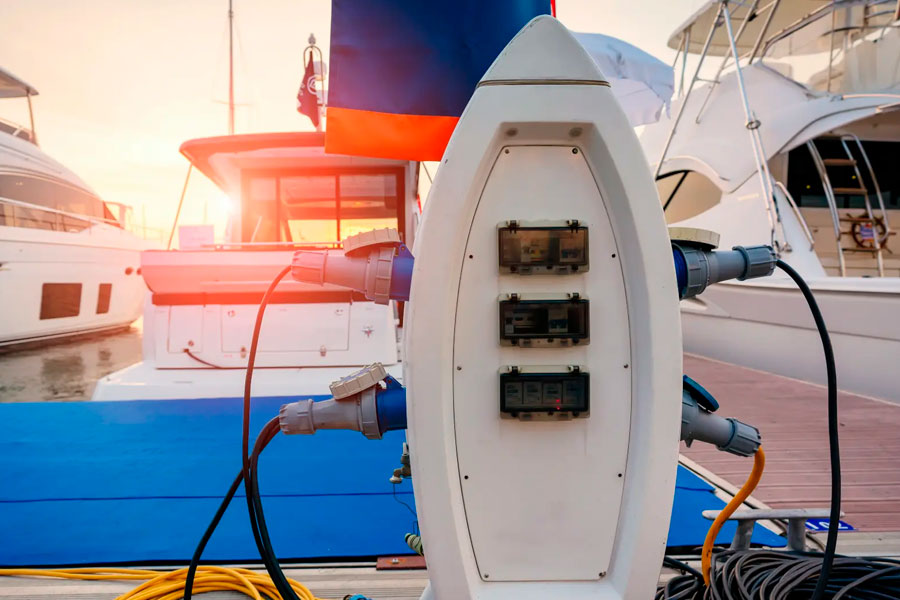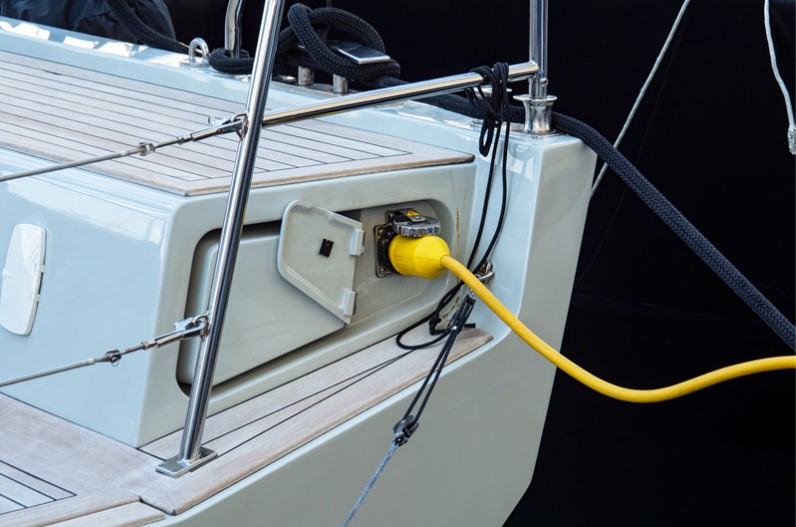
What it is & why it matters!
Have you had your boat’s electrical system inspected lately?
A boat’s electrical system is subject to extremes of temperature, vibration and humidity. The constant heating and cooling of the wiring causes the terminals to loosen over time. This causes degradation of the performance of the equipment attached, and the increased resistance causes heating which can lead to fires.

Corrosion rots the wires, especially at the terminals, again causing resistance leading to heat buildup and acceleration of the corrosion.
A broken grounding wire can expose fuel tanks and thru-hulls to rapid corrosion which can lead to major problems.
Insulation breakdown can lead to stray current in AC systems which can kill especially swimmers in the water near the vessel.
DC Wiring and grounding check
- Breaker panel investigated for signs of heating. Equipment powered up and voltages checked to identify any drops due to resistance. Infra-red sensor used to find hotspots. Loose terminals tightened where found to be loose.
- Batteries checked with battery analyzer to assess whether in spec. Terminals tightened if required. Connections to DC power source (charger or alternator) checked and voltages verified within Spec.
- Grounding wires confirmed functional from fuel fill to tank.
- Add on service to check all thru hulls grounded.
- Check conformance to ABYC (American Boat and Yacht Council) latest standards
Call or text for appointment
AC Wiring and grounding check
- Using the latest computer controlled circuit analyzer the following tests are performed:
- 2.1 Confirm hot, ground and neutral correctly wired. Identify reverse polarity, missing ground and “bootleg” ground. A bootleg ground can be a trapped wire, equipment breakdown or numerous other wiring problems. The potential impact is, if there is a short, instead of pulling the breaker the current flows through the bootleg ground which may not be able to take the load. This can cause a fire and is a safety hazard. With sensitive electronic equipment, the bootleg ground can lead to electrical noise e.g. poor reception on a VHF radio or TV or control equipment.
- 2.2 Confirm voltage within spec and no excessive.
- 2.3. Check ground to neutral voltage. Anything over 2VAC in a single phase system implies earth leakage.
- 2.4. Load check. Indicates voltage drop at 12,15,and 20 amp loads. If voltage drop over 5% then investigate poor connections, undersized wiring for the loads, and in 3 phase check load balanced across phases. Checks to establish if the resistance is in the hot or neutral. Checks impedance of the ground wire to ensure no safety issue.
- 2.5. Check GFCI. Imposes a current imbalance between hot and neutral and tests trip value (should be between 6mA and 9mA and the response time of the GFCI should be under 30mS.
- 3. Report:
- Lists equipment checked and state. Result of battery and electrical resistance measurements reported. Report any observed non conformance to latest ABYC and USCG standards and regulations.





